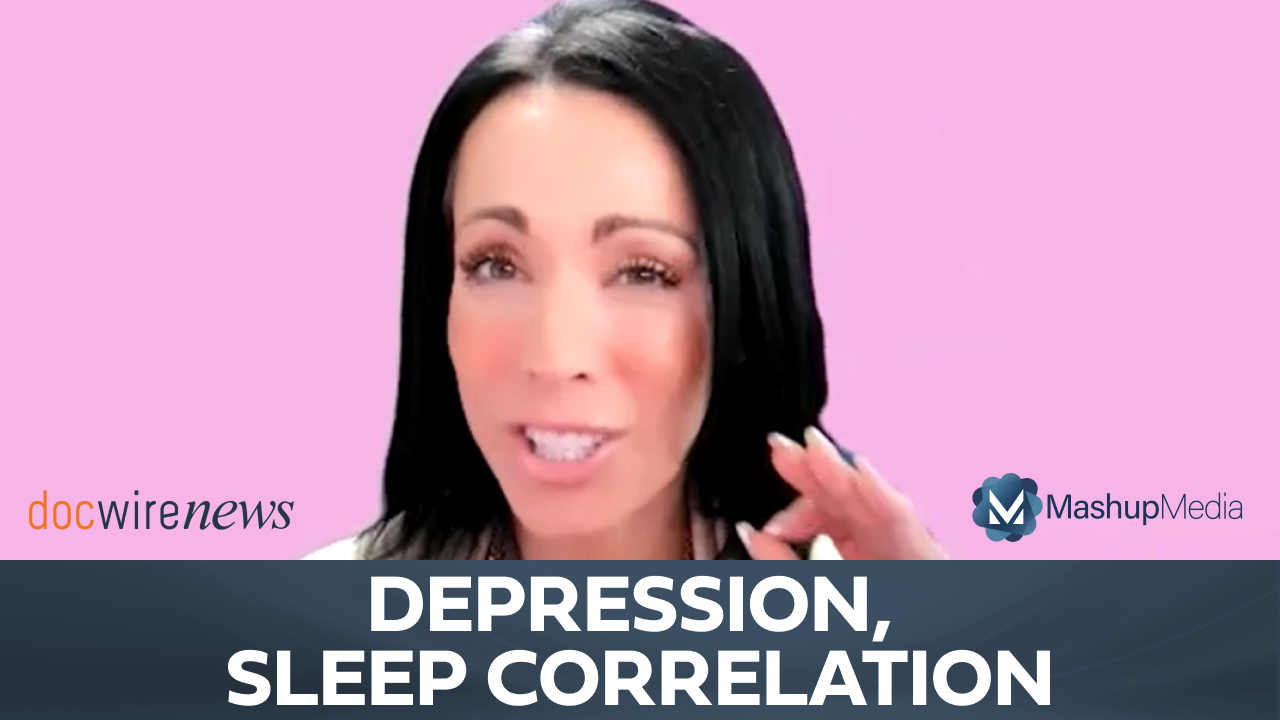
Circadian rhythm disorders, as defined by Cleveland Clinic, are conditions that disrupt the body’s natural sleep-wake cycles. These disorders can have a negative impact on both sleep, and how you function when awake. In this interview, neurologist and sleep expert Dr. Anne Marie Morse provides an in-depth overview of circadian rhythm disorders, how they affect daily life, and why circadian science is the ‘unsung hero’ across medicine.
What is circadian rhythm, and what are some types of circadian rhythm disorders?
So when talking about sleep health, we sometimes are really talking about being asleep or being awake, and we very frequently are neglecting that sleep science includes circadian science. So we generally are talking about sleep health and circadian science. Circadian science is really the unsung hero across medicine. It is something that is incredibly important and represents the full 24 hours of how our body functions. Although many will limit the idea of circadian science to this is where melatonin plays a role, and he definitely has stolen the stage for many years, the reality is in 2017 a Nobel Prize went to three men who did an incredible job of identifying and characterizing clock genes, which really are the drivers, the DNA signaling, of when we should be functioning at what times of day. With this stated, there’s a peak time of function for every singular cellular mechanism in our bodies, which also translates into why there is a predictable circadian distribution across the 24 hours of the day of when we would be expecting to experience certain diseases.
Now, when we’re talking about the circadian rhythm, it is very important to recognize that this very clearly plays a role in sleep-wake control. In fact, when we talk about what is controlling sleep-wake, the two main processes that are typically referenced are homeostatic sleep drive and our circadian rhythm or circadian drive for arousal. The interaction between these two are going to be what contributes to the overall maintenance of sleep-wake health. Now, when looking at those two processes, we can have this function in either one. When we have dysfunction in our circadian rhythm, you can have a wide range of different types of distributions of regularity issues. We sometimes will see things like an advanced sleep phase, this is more commonly encountered in our geriatric or our older population. This is why we’ll see the early bird special where we’re having lunch or dinner rather at four o’clock or five o’clock is because bedtime is going to be closer to six or seven and frequently waking much earlier like three, four o’clock in the morning. We’re seeing that the circadian rhythm is advanced.
Alternatively, in our teenagers we may see something like a delayed sleep phase where biologically we’re more likely to be falling asleep at later hours. Pathologically, this is when people are falling asleep past one o’clock in the morning and would prefer to sleep until maybe 10, 11, 12 o’clock. Clearly, again, out of alignment with what socially might be expected. There are other extremes of these types of disorders such as a non 24 cycle where individuals specifically who have low vision or a lack of vision, due to a variety of reasons, may have an ongoing advancement of their circadian rhythm, and so there’s a lack of this same regularity night after night. There’s also shift work disorder where there’s a irregularity just by the day of the week, depending on what shift [inaudible 00:03:13]. And these types of irregular sleep-wake schedules can lead to a lot of not only dissatisfaction in sleep-wake, but as we’ve discussed on other kind of little clips, the irregularity of sleep can also lead to major deleterious outcomes in physical, mental, and emotional wellness.
How do circadian rhythm disorders impact a person’s daily life?
One of the biggest challenges when looking at circadian rhythm disorders is the fact that these are going to carry a lot of difficulty for many people. Some of them feel like a nuisance, like, man, I just can’t do things the same as other people. Or I would really like to stay up later but I just can’t. Or I would love to wake up earlier and everyone makes me feel bad for not being able to get to work on time or get to school on time, it takes me so much longer. The reality is that these are true biologic needs and disruptions that are going to have other downstream consequences. In addition to them feeling like a nuisance, which, again, please know that that’s a stigmatizing experience to say it’s a nuisance and you should just try harder. Nope. This is unfortunately a challenge that biologically and medically need to be addressed, and with them not being addressed lead to other medical consequences.
It can lead to symptoms of excessive daytime sleepiness, irritability, mood disorders, but also can lead to other physiologic changes that can result in increased risk for obesity, diabetes, cancer, and other cardiovascular metabolic and medical consequences. The reality is that when looking at circadian rhythm disorders, this is really what we’re highlighting when I’m talking about that regularity and timing of sleep. It’s giving the medical nomenclature, or terminology, of what does regularity and timing mean. It is saying how do you recognize the circadian rhythm, that day night rhythm, that 24 hour distribution, and how do we get into alignment as to what your body actually biologically wants to do?
What sleep behavior adjustments can help people living with circadian rhythm disorders?
So if you’re a person who’s living with a circadian rhythm disorder, first and foremost is recognizing what kind of circadian rhythm disorder is it and what are the drivers to developing it. So there are some that are innate to you, genetically programmed in you. However, even with that stated many times there still is the influence of being able to control some behaviors that may help in making it more aligned with things that allow you to thrive in a way that you would like. What’s important to recognize is that there are so many things that we’re exposed to on a daily basis that actually influence our circadian rhythm. Things like temperature, not only the environmental temperature, our own body temperature. There’s also food, not only the type of food or the quality of food but the timing of food. Light exposure has gotten a whole lot of attention in making sure that we’re getting the optimal amount of bright light with the highest amount of lux and most amount of blue wave like spectrum in the earlier parts of the day.
With that becoming a warmer light and maybe more on a red spectrum in the evening to help enhancing our own biologic development of things like melatonin. However, it would be a miss to say that that is the only driver of what is looking at our circadian rhythm. FLIR data has demonstrated that that timing of food can also be another major key factor in being able to help in adjusting your circadian rhythm. In fact, things like jet lag, where you’re traveling multiple time zones, it has been demonstrated that potentially utilizing the timing of meals and the types of meals prior to your travel can help you to adjust to that new time zone more easily. Similarly stated, eating too late and having a very high caloric high fat dinner or meal can also lead to circadian disruption, making it harder for you to fall asleep when you want to. So recognizing that there are things that you’re fully in control of and partnering with your clinician to understand what should you specifically tailor in your practice of your day-to-day living so that you can utilize these behaviors as tools and not compromise your health is definitely something that will help you to get to your optimal circadian drive, your best night’s sleep, and most importantly, your most enjoyable and health filled days.







 © 2025 Mashup Media, LLC, a Formedics Property. All Rights Reserved.
© 2025 Mashup Media, LLC, a Formedics Property. All Rights Reserved.